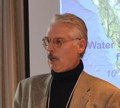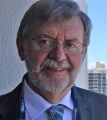Water Sustainability Act is already influencing water management in British Columbia

In the June 2016 issue of Sitelines magazine, nine articles showcase the breadth of program elements delivered by the Partnership under the umbrella of the Water Sustainability Action Plan for BC. In 2016, the Partnership delivered the keynote address at the BCSLA Annual Conference and gave examples of How the Water Sustainability Act is Already Influencing Water Management in British Columbia. “The set of articles introduces readers to concepts such as ‘water as a form-maker’. This means watersheds are defining landscapes,” stated Tim Pringle. “In many ways, the built environment has to adapt to watershed features and water movements to maintain viable settlements.”










